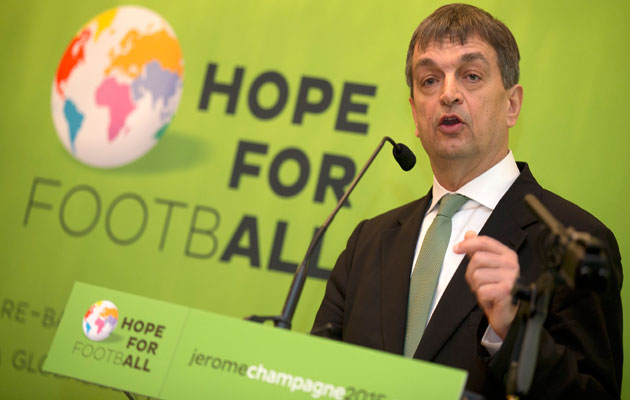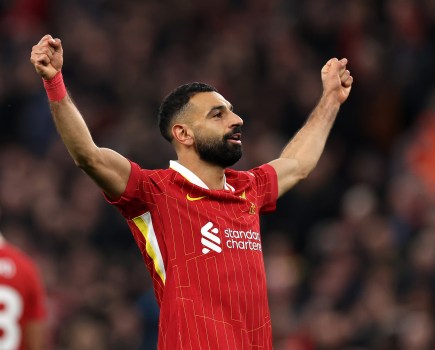Jerome Champagne, the most intense student of the world game in the FIFA presidential race, has come out firmly in favour of the World Cup in Qatar and firmly opposed to the power bid from UEFA’s Gianni Infantino.
Champagne worked in senior roles at the world governing body for 11 years until being ousted in 2010 after a pincer movement between the Asian and European confederations.
Standing as an ‘independent’, he is expected to claim only a handful of votes at congress on Friday, lacking the support of a confederation or particular grouping of countries. But not needing to follow party line has allowed him the rare freedom for an election contender of promoting his own opinions.
The central concern for Champagne has always been a growing inequality between continents and leagues. He has appreciate this imbalance in how his low-budget campaign has compared with have-plane-will-fly rivals such as UEFA general secretary Gianni Infantino, Asian president Sheikh Salman bin Ebrahim Al Khalifa and Jordan’s Prince Ali bin Al Hussein.
The 57-year-old Frenchman said: “The campaign has been a globalised, unequal campaign because some candidates have had governments and institutions behind them.
Serious questions
“If the election is based on platforms, experience of FIFA, capacity to end the controversies, then I think I have a chance but if not . . . then we’ll see what will happen.
“For FIFA it’s clear we have to answer serious questions such as what kind of football do we want?
“The inequalities are growing between continents and leagues. So do we want a FIFA just organising the World Cup every four years or a real government for the game? Do we want to finally finish with the controversies?
“I would answer ‘Yes’ but I don’t know if the FAs will share my point of view.”
A significant decision on Friday by congress, ahead of the presidential election, concerns the likely endorsement of a package of reforms which would restructure the workings of FIFA. Champagne believes “the glass is half-empty and half-full.”
He recalled: “Back in 2012 I proposed a rebalancing between the continents and to separate the governmental functions from the economic activities.
“I can find my dna in a lot of that but at the same time, for example, the proposed stakeholders committee is not sufficient. Players and clubs and leagues should be at the top table of the exco.”
European ambition
This led Champagne on to the dangers of a FIFA commanded by any one sector or confederation and he pointed a specific finger of concern at Europe.
Infantino, apart from having served UEFA for almost a decade, has proposed a massive increase in FIFA’s development spending as well as a World Cup expansion to 40 teams.
Champagne said: “Football has developed intelligently and interestingly in the past 40 years because you had a strong FIFA able to achieve a balance [in the world game] without restricting or injuring the big football in western Europe. But if you give the keys of FIFA to UEFA then the checks and balances will be gone.”
He thought Infantino’s spending concept would “eat our reserves” and he rejected a 40-team World Cup because “the present 32 is a perfect number and adding a few more slots here or there will make no difference to the inequalities in the game which is the real challenge ahead.”
Many observers within the game cling to the belief that the present strife would not have erupted in so virulent a manner had the exco, in December 2010, not voted for Qatar as host of the 2022 World Cup.
Keeping Qatar
Here again Champagne went against a populist European grain, expounding progressive support for an award which has continued to raise hackles within football’s rich, western corner.
He said: “Look at the terrible events which have happened in the streets of Paris, in Burkina Faso, in Nigeria, in the Middle East. I know about the controversies but if football is necessary in the world of today it is because some other people are trying to create a war situation.
“As for the 2022 World Cup – like the World Cup in Russia, especially in these tough geopolitical times – we need such moments of world communion and unity and that’s why we should keep this World Cup where it is.
“What divides us is much less important than what unites us so the first World Cup in an Arab country could be a good tool to convey this message of unity – a message of dialogue between civilisations.”







